Streets for People / There Goes The Key West Gayborhood?
On February 5 the Equator Resort – the Male-Only – Clothing Optional hotel at 822 Fleming Street announced that after 27 in business as the Equator, their last day of operation would be January 8, 2025, saying: “The company has not sold, however there are new shareholders that have expanded their view of the corporations future plans.” The “expanded view” means the 34 room hotel with beautiful grounds and two gorgeous pools will no longer be for gay men but rather be open to all. Insiders tell us the new name will be “Bishop Key West” and will not be clothing optional. And just like that Key West has lost one of the few remaining “Gay” hotels.
Is our gayborhood disappearing? Is Key West becoming less gay? What does the loss of gay spaces mean for gay businesses and our island LGBTQ+ community? Our downtown business district and our Key West community in general? And do proprietors of gay establishments have a responsibility to carry on and ensure their traditions?
To try to answer some of these and other questions, we did some research on the waxing and waning of Key West and other cities’ experiences with gayborhoods and reached out to locals in the know and asked them these questions in light of the Equator Resort’s announcement. We received some heartfelt and thoughtful responses and are sharing them along with a little bit of historical context in hopes of sparking further conversation about the future.
“Is Key West Going Straight?”
That’s the title of a New York Times article that begins:
“FOR decades, the remote Florida town of Key West has been a refuge for gay tourists, a kind of Southern bookend to Provincetown, Mass. — a place where drag shows, all-male guest houses (complete with communal hot tubs) and a spirit of unbridled hedonism attracted everyone from closeted Midwest accountants to Tennessee Williams.
But recently, soaring real estate prices and the popularity of events like Fantasy Fest — an annual bacchanal of parades, masquerade balls and celebrity look-alike contests that began in 1979 as an effort by businesses to promote tourism and has since evolved into a drunken open-air party that would be right at home on fraternity row — have begun to attract a more heterogenous crowd, one that can at times make Key West look like any other tourist town getting ready for Spring Break.
You can feel the change… for many longtime gay visitors to this 5.9-square-mile island, located about 150 miles southwest of Miami, there is a growing sense that Key West is no longer the gay destination it once was.”
For many, this seems to ring true. Perhaps for you too.
Oh, the date of this article? November 18, 2005. Yes, 2005. So, people have been saying Key West isn’t what it once was, for a couple decades now. Here’s how Laura Zequeira -Smith, Manager of Alexander’s Guesthouse puts it:
“People have been saying for a long time that Key West isn’t as Gay as it once was. I don’t agree with that entirely, as there are many gay people who live and work in town. Do they go to or open exclusively LGBTQ businesses? Do LGBTQ visitors only visit LGBTQ businesses? Not so much anymore, as the younger generation enjoys the fruits of the fight of older generations. Fighting for equality and the fight against discrimination has brought so many wonderful changes, that are still evolving, merging minority groups with larger groups…creating our One Human Family.”
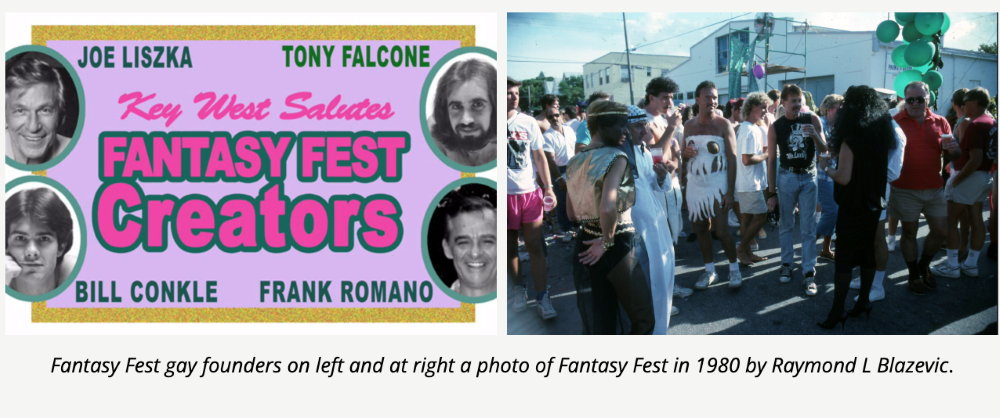
Gayborhoods and the Places We Hang Out In, Rise and Fall
In his groundbreaking, amply researched and much followed-up 2014 book, There Goes the Gayborhood? Professor Amin Ghaziani discussed how legendary gay neighborhoods such as the Castro in San Francisco, Greenwich Village in New York City, Boystown in Chicago and so many more long provided sexual minorities with safe havens. But as society increasingly accepts our LGBTQ+ community into the mainstream the book explores the question: Are gayborhoods destined to disappear? Smaller places like Key West, Provincetown, Ogunquit, Fire Island/The Pines, and Rehoboth Beach have similar histories to gayborhoods in the larger cities but on a city-wide scale.
Local entrepreneur Larry Ketron, Manager of the “gayest store in Key West” the In Touch gift shop at 706 Duval Street echoes Ghaziani saying: “From the days when the “mob” saw the money potential of creating “safe spaces” for the homosexual crowd to the vision of gay business owners things have been profit driven. Once the safe haven for young coming out and “closeted” men, things have changed. As clientele grew older, the younger generation didn’t feel the need for “safe havens” and have chosen to go anywhere they feel welcome. That and the changing dynamics of “sex hookups” via internet sites have left bathhouses, guest houses, and gay bars to decline. Check out the age of the clientele of most gay bars and bathhouses and the age is not the twenty somethings of the 70’s. Today, if you want to hookup, just grab your phone.”
This isn’t just an academic exercise as even the front page of the Key West Business Guild’s gaykeywestfl.com visitors website feels the need to address the issue right up front with the headline: “IS KEY WEST STILL “GAY?” and goes on to say:
“Please, girlfriend. We’re still here. We’re still queer. Now come visit us! Seriously. Just like Provincetown, Palm Springs, Ft. Lauderdale and West Hollywood we’ve all heard the same question: “Where did the gays go?”
The site goes on to explain that back in the day Key West was one of the few truly accepting places and it still is as evidenced by the city’s official “One Human Family” motto.
The Business Guild’s Executive Director Rob Dougherty adds:
“In the late 60’s and 70’s, the focus of the movement was to be seen, to be heard, and to be afforded equal rights the right to live with dignity. The 1980’s should have been a time of great celebration; however, those of us who lived through the time, and buried so many of our own, know there was no celebration. We were literally fighting for our lives. In the 90’s, our community focused on political reform. The right to marry, to adopt children, and to change laws that made discrimination legal. In short, we fought for equality under the law. We deserved and demanded equality under the law. We made such amazing progress; however, that did not come without cost. We saw the shift from celebrating what made our culture so unique, to “we are just like you”. The problem is, as with any culture striving for assimilation, we may have lost the very core of our culture.”
That “cost” is the loss of gay businesses and gayborhoods.
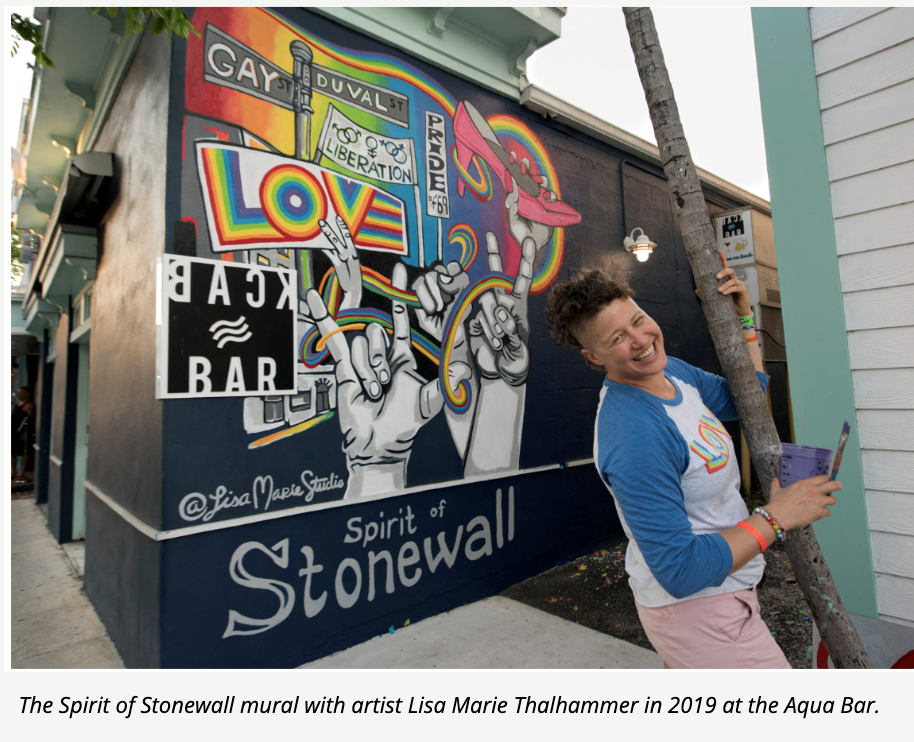
Ghaziani’s book puts the changing face of gayborhoods into a larger urban planning context by pointing out that cities aren’t static places that stay the same. Gayborhoods are just like any other neighborhood and are organic and continually evolving places. Constant population change or turnover is a regular feature of most neighborhoods.
Ghaziani discusses how gayborhoods developed after WWI as men and women returned home and realized the coastal port cities they were discharged to, were places they could find others like themselves. This accelerated in the 1960’s and 70’s as a gay identity and liberation emerged and more and more people gravitated to these burgeoning gayborhoods that were centered on the presence of gay bars and businesses. But that was seemingly the heyday.
Ghaziani’s research tells us that between the 2000 and 2010 Census, the number of same-sex couples living in key traditional gayborhoods declined as gays realized they could live safely in many more places. It isn’t just that gay people are spreading out but that many of the places gay people hang out in (think bars, cabarets, discos, sex clubs, inns/resorts and the third places around them) have also disappeared. In a story in the Seattle Times last year asking the question Is Seattle Still An LGBTQ-Friendly City? they say “Nationally, the Washington Post reported that 45% of gay bars have closed since 2002.”
In Jeremy Atherton’s engrossing book Gay Bar: Why We Went Out, February 2021 it is pointed out that gay bars are closing at an alarming rate and in the context of his personal story he explores what’s being lost as a result. I just finished Lucas Hildebrand’s November 2023 book The Bars Are Ours – Histories and Cultures of Gay Bars in America, 1960 and After and came away impressed by the depth and breadth of the cultural significance of having safe places to gather. It is a comprehensively researched and vividly written account that depicts how bars reflected the LGBTQ+ communities they attracted and, in many cases, at least in urban settings, helped solidify gayborhoods. So, when gay bars or gay businesses like the Equator Resort disappear it is fair to ask the question what’s happening? While it is undeniable based upon the research that the number of gay bars and places has been dwindling, the book leaves one hopeful that our places aren’t entirely disappearing but evolving in light of new technologies, marriage equality and a new generations’ increasing ability to be free to be.
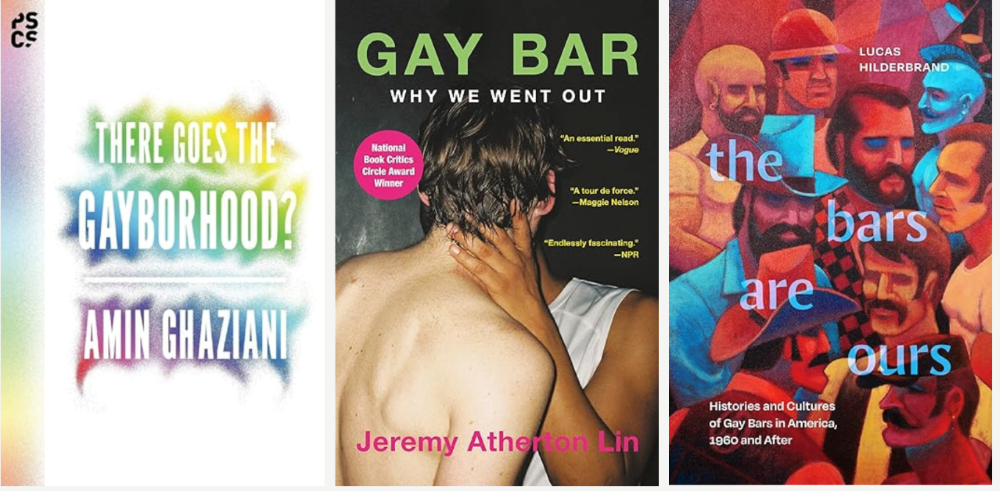
Flaming and South Hard Streets And Gay Key West’s History
The books and research indicate that Key West’s experience is illustrative of what’s going on across most of the country with a few notable exceptions like the explosive growth of LGBTQ+ people and businesses in places like Wilton Manors in Fort Lauderdale.
An article on gaykeywest.com How The Gays Saved Key West by Guy Ross traces how Tennessee Williams and Leonard Bernstein’s, among other artists visits to Key West in the 1940’s, sparked word among newly forming gayborhoods in major east coast cities that Key West was an easy, live-and-let-live sanctuary. He goes on to say that “By the 1970s the stream of gay visitors to the island had turned into a torrent with more than 30 same sex guest houses on the small island catering to gay men.”
Peter Arnow, the Key West Business Guild’s longtime community liaison and photographer said of that time period when the Guild first formed: “The gay community has always sought out safe havens near the water “at the end of the line.” Establishment of earlier communities before Key West included Provincetown and Fired Island. At the time, Key West was economically depressed, which enabled visitors to locate year-round to the warm-weather environment at a low cost – and, in the process help to fix up the infrastructure.”
“When I first arrived in Key West in 1976, older queens were complaining that the island was no fun anymore because all the drunken sailors needing a blowjob were gone.” says Richard McGarry co-author of the recently expanded 2nd edition of the book Gay Key West – A History in the context of people always complaining the past was better, when I asked him about the demise of the Equator. He goes on:
“The trend of gay guest houses switching to “all welcome” seems to have started in the 1990s and I think that Peter Arno of the Business Guild told me that there was something like 38 gay guest houses in Key West in the late 1980s. Many were a single old Conch house with maybe a half-dozen rooms and run by a gay couple.
A week’s vacation in Key West was very affordable back then. As I noted in Gay Key West – A History, “the rooms were small and the bathroom was down the hall, but for less than $100 you could spend a whole week at ‘Big Ruby’s.’” It was the first gay guest house on the island in the early 1970s.
The cost of a Key West vacation now prices out the kind of young gay men that filled lower Duval Street after dark in the era when the Village People were singing “I’m heading for Key-ey-ey West, the key to happiness.”
The Monroe County Tourist Development Council (TDC)’s website The Florida Keys & Key West says “The Key West Business Guild and its LGBT Visitor Center first opened their doors in 1978 to support the community and promote tourism. Some of the founding business members included La Te Da and Coconut Grove accommodations, the Copa and Monster clubs and the fabled Atlantic Shores hotel.” Today, only La Te Da still exists. The Coconut Grove, which use to be at 815 Fleming Street across from the Equator Resort and the Oasis Guest House at 823 Fleming were both all-male clothing-optional resorts that are now part of the “all welcome” NYAH Hotel complex.
On Real Estate agent Gary Thomas’ blog that’s full of fun Key West history, in a 2013 post about the sale of a condo at the Seafoam building next door to the Equator, he says: “One of the most interesting condos in Key West is offered for sale at the asking price of $400,000. It is Unit #6 located on the top floor at 812 Fleming Street and has a front balcony that overlooks the gayest street in Key West. If you are a gay man or woman, of if you are just hip and love to be part of the action, this pied-a-terre may be the home of your dream or just the vacation getaway place you have been searching for.”
In younger days I recall visiting friends in Key West beginning in the mid-1990’s and being introduced to the gayborhood with the locals explaining that Fleming Street was to be called “Flaming Street” and Southard Street was to be called “South Hard Street” because of all the gay places and people. When my best friends Kenny and Steven got married in Key West in 2004, they put up the wedding party at the Coconut Grove and Oasis. And while I haven’t heard people use that terminology in years, the loss of the Coconut Grove, Oasis and now Equator Resort does seem to dim the flame of Flaming/Fleming Street’s lore.
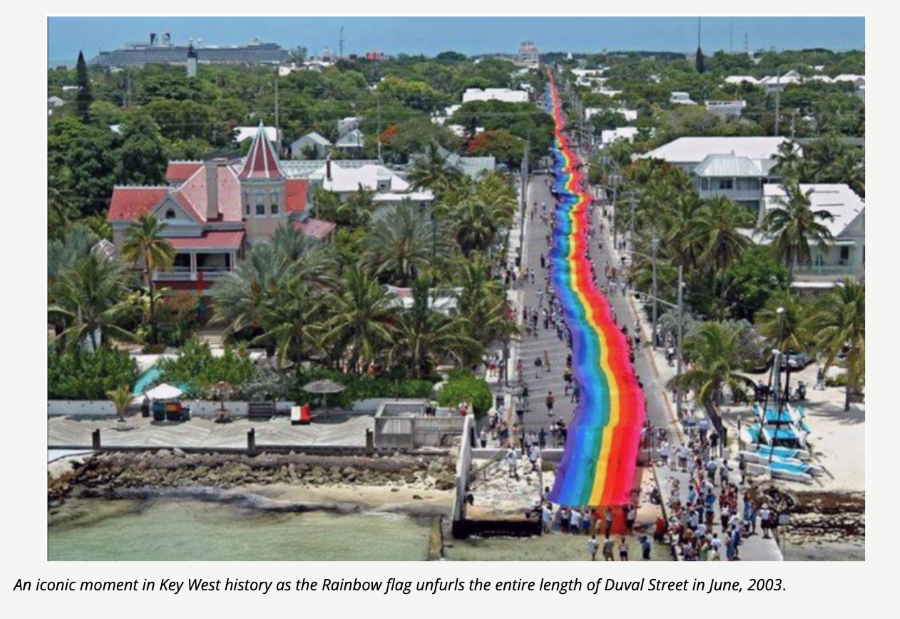
What Does the Loss of Gay Places Mean for Downtown and Gay Key West?
To place the loss of the Equator Resort in the context of what it means for downtown and our local LGBTQ+ community we asked some local stakeholders:
Here’s what Neil Chamberlain, owner of Graffiti Key West retail shop at 721 Duval Street and publisher of Q Magazine – the monthly guide to Gay Key West says: “That’s tough to say. LGBTQ+ visitors are already very much welcome anywhere in Key West. It’s not as if gay men aren’t welcome elsewhere and this takes away hotel rooms. The number of rooms is not changing in the city. However, what we don’t know is how many guests of Equator were only coming because of what the Equator offered. If these guests were coming for Key West primarily and for an LGBTQ+ property secondarily, they may still visit so the impact would be minimal. If these guests primary reason for visiting was the ability to be in the company of other LGBTQ+ men primarily and visit Key West secondarily, those visitors will likely look elsewhere, such as Fort Lauderdale or Puerta Vallarta for their vacation. Only time will tell what the long term implications will be.”
Jeffrey Smead, General Manager, Island House Resort says: “Island House is especially saddened that Equator has decided to rebrand and no longer be a gay establishment. They have been one of the Key West strongholds with 34 rooms dedicated to serving gay patrons seeking that kind of unique experience. When shifts like this happen, it makes it a lot harder to defend the destination to those who say, “Key West isn’t gay anymore” for the last 20 years.”
Laura Zequeira-Smith of Alexanders added: “When the Equator closes, some visitors may not come back to Key West, while others will continue to come.”
Cori Convertito, PhD, Curator & Historian, Key West Art & Historical Society and Key West Business Guild Board of Directors answered the question this way “The closure of Equator Resort is a loss for the gay community. Historically, Key West has been a safe haven for those in the gay community and having institutions like Equator Resort strengthened that safety and security for travelers.”
Larry Ketron of In-Touch gift shop chimes in that “People say that Key West is still a “gay” town. Yes, it is but the age of the gay residents is often over the age of 60. The results of the changes we fought for in the sixties, seventies and eighties were achieved at our loss. As a community, we have allowed our world to shrink, because of our own blindness. Soon, there will be fewer bars and guesthouses. It’s all about money not family.”
And Rob Dougherty of the Key West Business Guild says: “I’m not too sure what it will mean for downtown Key West as a whole; however, it will certainly impact the visibility of our thriving LGBTQ+ community. The absence of the Equator as a destination will absolutely impact our ability to promote our island as a welcoming place for Gay men to travel. That means less LGBTQ dollars being spent in businesses. It means existing LGBTQ and friendly businesses will have to examine their strategy to remain viable. In whole, this means there is the potential of the LGBTQ community having less of an influence in a city that at one time, relied on LGBTQ dollars to remain strong.”
The consensus seems to be that while the loss of gay places may not affect the economics of our downtown, that losing gay places does have an impact on the LGBTQ+ community. Nearly everyone we talked to or researched voice some variation on theme that the loss of gay places or gay neighborhoods is in part due the acceptance of our community by the mainstream over the last couple of decades, and that that part at least is a good thing. “We’re a victim of our own success” multiple people have said.
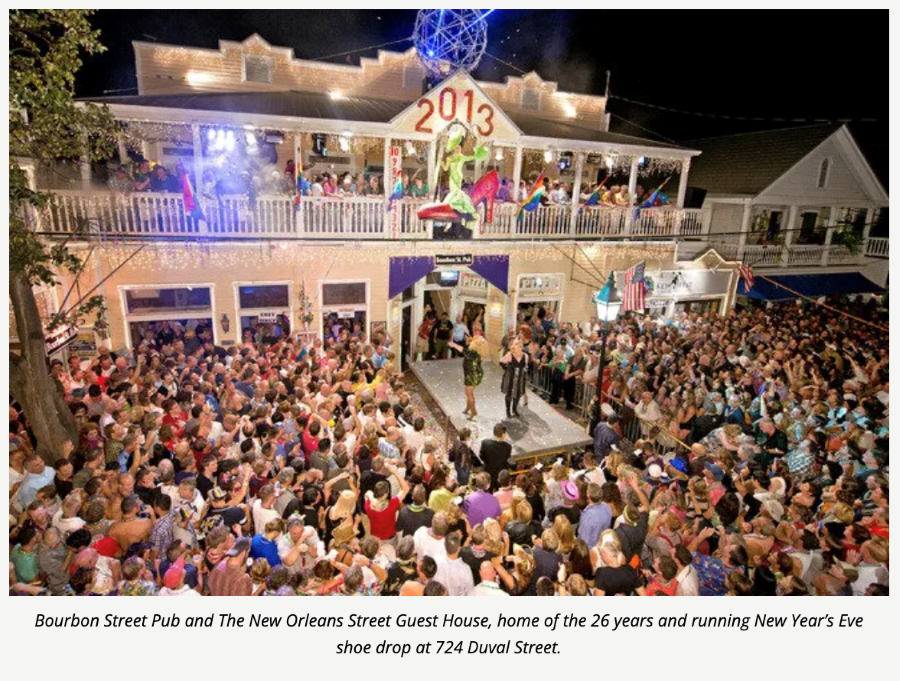
Do Gay Proprietors Have a Responsibility to Their Communities?
I’ve always admired Neil Chamberlain’s thoughtful and reasoned approaches on issues of the day in Key West, so I was particularly taken with his notion that gay proprietors are stewards who have a responsibility to try to continue their businesses’ traditions. Here’s how Neil explains it:
“Obviously, I’m disappointed. (In the Equator Resort closing.) I would have preferred that they either continued on as it always has or potentially sold to someone that would have respected its history. I feel that owners of LGBTQ+ businesses are “stewards” of the business more than “owners.” I believe we have a responsibility to honor those that built these businesses and continue in those traditions. Ultimately, businesses are here to make money. If that’s the only agenda, then buy a generic business that doesn’t have a specific history that someone built from the ground up.”
He goes on to add his personal story in this regard:
“Almost 8 years ago, I purchased Graffitti, a primarily LGBTQ+ men’s clothing store. I wasn’t looking to buy a clothing store. I was very much enjoying my simple life as a DJ and publisher. walked in one day and saw that there was a lot of missing inventory. After a conversation with the owner, he told me he was starting to close the store to focus more on his own life. I was saddened that Key West was losing another long-term LGBTQ+ business. We spoke in great deal and over the next month, we negotiated a deal for me to buy the store and continue the tradition. I was fortunate I had the time and the ability to purchase the store, because I thought it was important to try to save another LGBTQ+ business. At the time there were two other stores that were similar to Graffitti. Sadly, both are also gone, but I have done everything to make sure Graffitti continues on, and it’s my intention to continue to do so for as long as I can. If there comes a time for me to hand over the reins, I will do everything I can to make sure the new owner continues on with this tradition. I know I can’t enforce that, but I will try to instill the importance of the history into a new owner one day.”
Neil’s thoughts and story touched a chord with me as Amin Ghaziani, Lucas Hilderbrand and Jeremy Atherton’s books each discussed the often revered status of gay establishments in their individual communities and how their owners were often beloved and vital cogs in their gayborhoods.
To reach for a metaphor, think about sports teams owners. While for nearly every businesses the bottom line is profits, for iconic institutions that represent their community, like sports teams, most people say the owners have a responsibility to do right by their community too. Owners who move teams out of cities are thus justly vilified. While the Equator Resort certainly isn’t an institution, wouldn’t it have been better for our community had Equator Resort owner Richard Hoy sought the advice, counsel and help of the community to keep the establishment in gay hands?
So, to answer our own question, yes, we agree with Neil and think gay proprietors do have a responsibility to our community. Especially as it is our community that helped build them up. (Note we did reach out to the owner and management of the Equator Resort and didn’t receive any responses to our inquires.)
So How Does the Community Move Forward?
In thinking about Key West’s future Neil says: “Our community doesn’t have the need to seek out these safe havens anymore, but Key West still has a lot to offer. It’s important that we continue to educate people on the history of the LGBTQ+ community and how places such as Key West served as a safe outlet to be ourselves. We can’t do that if we keep pushing our own people away.”
Jeffrey adds: “What hasn’t changed (and won’t), is that Key West remains a tropical domestic destination that is safe for gay people to visit, and still has all the ingredients for a vacation that gay people really love. World class food & drinks, warm weather, gorgeous water, unique accommodations, art, history, and endless party options. What’s important for us to remember, is the reason Island House was founded in 1976 to begin with, is exactly why it’s still relevant in 2024. A gay men’s resort like this is not just selling lodging- it sells an experience. So long as gay people still seek out gay experiences, and Island House keeps raising the bar of what a unique property like us can accomplish, we’re going to keep this place gay AF.”
Laura says: “People still feel a natural pull to find other like-minded souls to connect with. So now, we try to find ways to gather, without excluding others. That is the balance the world is now trying to achieve, which I have faith we will… I think it is still important to have LGBTQA businesses where each of us can gather with those who understand us, to receive the support we need.
The Key West Business Guild is doing a wonderful job at launching a great Gay Key West campaign this year. We still have our Gayborhood down on Duval St. with the fun bars, fabulous drag shows and rainbow sidewalks. While Gay Key West may not look like it once did, it is evolving with its people, but always filled with colorful diversity and love.”
And Rob concludes: “I believe the issue is to address preserving the core of our culture. Gay bars are almost a thing of the past except for larger metro areas. While we have the strong support of Key West, from our local police to places of worship, LGBTQ businesses are the ones that will need to stand up. If there is to be any progress in preserving the core of our culture from fully disappearing, we must act as a unified community. Preserving and honoring our history matters if we are to move forward.”
In Key West, the most visible LGBTQ+ businesses are the foundation of the Key West Business Guild. Without their support, there would be no mission statement, no vision, and no resources to carry us forward. Without the LGBTQ+ community, one can make the argument, there would be no Key West, as we know it. While strong, it could be stronger. I believe that there have been political and social currents that have threatened progress our community has made over the last 5-decades. These currents are seen everywhere, and we cannot allow them to continue to dismantle the legacy of those who have fought, and have died, so that we can celebrate the freedom afforded to everyone in a Democracy.”
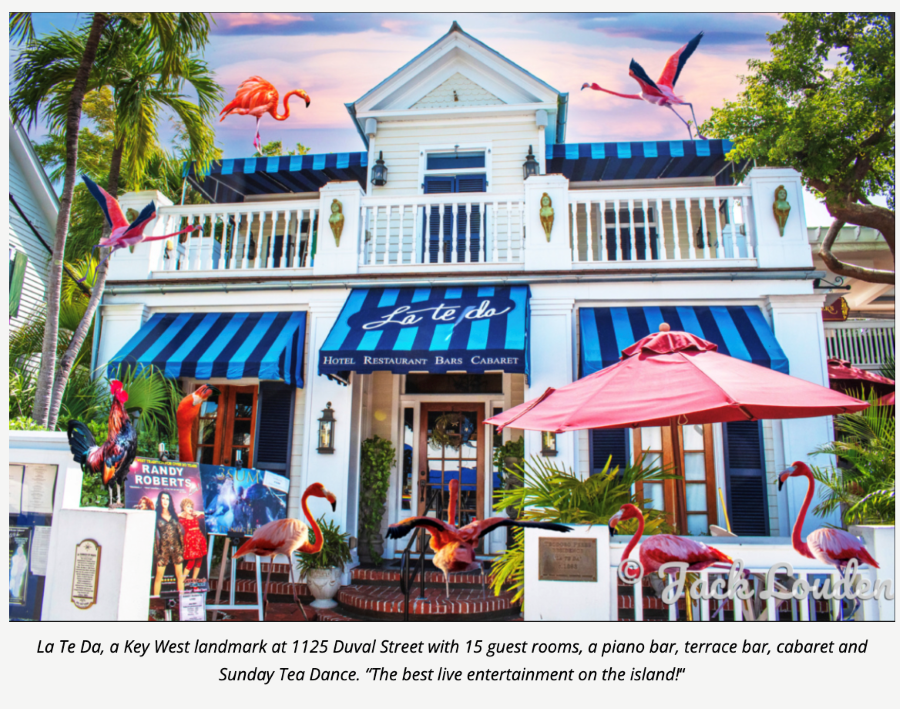
Things We Might Do To Continue and Forward a Gay Key West
In a book review and chat with the There Goes The Gayborhood? author Amin Ghaziani, VOX writer Matthew Yglesais and he talk about a couple of solutions for cities that want to shore up their gayborhoods. Those giving us feedback hit on a third.
1 – Commemorations
The first is called civic commemorations saying: “Chicago became the first city in the world to use tax funded dollars to municipally mark its gayborhood — Boystown. They installed art deco styled rainbow colored pylons along North Halsted Street, which is a main clear artery of the commercial and night life district in the city. We’ve seen versions of this in many cities across North America.
Philadelphia installed rainbow flags underneath the street signs that demarcate a portion of the Washington Square West neighborhood. Toronto did the same thing by installing rainbow flags underneath its street signs in the gayborhood. In Vancouver, recently, the city installed permanent rainbow colored crosswalks in the heart of the Davie Village gayborhood. West Hollywood has done the same thing.”
Here in Key West the City installed the Rainbow Crosswalks at the intersection of Duval and Petronia Streets. They’ve adopted the “One Human Family” motto and officially fly the Rainbow flag at City Hall and City events. I’ve always wondered why, during Pride week or month each year, Rainbow flags are only installed on the street poles in the few blocks of our gayborhood and not the entirety of Duval Street. Or maybe also along N. Roosevelt Boulevard as you come into the City or at the Historic Seaport and many more places? What other things could be done during Pride week or month and what permanent commemorations could be installed?
2 – Anchor Institutions
The second measure that they discussed was promotion of “anchor institutions” saying of them: “These are particular organizations or non-profit community centers, businesses that have particular importance or significance for the LGBTQ community. This could be something like the community center on Halsted in Chicago. It could be a particular bar that may have existed for a while that has special significance to the community. These anchor institutions will continually inspire people to visit and spend time in the neighborhood even if they no longer live there.” In his book there’s also talk about gay newspapers and periodicals and of providing subsidies to anchor institutions.”
One of the recent bright spots in our gayborhood was when the recently deceased and much beloved gay Key West institution Michael Ingram sold his Aqua Plex property, which include Aqua Bar & Nightclub, 22&Co, Back Bar, and the newly minted (formerly Sidebar) Birdcage Cabaret, at 711 Duval Street last May to Jonathan and Michael Barrett, a gay couple from Michigan. To his everlasting credit, Michael Ingram “wanted to keep its drag bar tradition.”
So how do we help other anchors establishment thrive and continue and help their owners do what Michael Ingram did and not what Richard Hoy is doing?
3 – History
Many of our responders talked about the importance of “preserving and honoring our history” or “educating people about the history of our community” and “the need for our history and personal stories to be shared.”
There are many ways to keep the Key West LGBTQ+ history alive. How about a Rainbow Museum? The first gay museum opened in 2011 in San Francisco’s Castro District and many more since then. Here’s “The Top 10 LGBTQ+ Museums in the U.S.” An interesting museum spinoff idea is Chicago’s Legacy Walk with outdoor installations dedicated to highlighting world-changing members of the LGBTQ+ community. Given Key West’s vibrant history, either of these ideas would have much material to work with.
What else could we do?
The Key West Gayborhood and Its Anchor Institutions Are Important for Key West – Let’s Find a Way to Ensure That Continues
In writing about the There Goes The Gayborhood? book Matthew Yglesias says:
“Areas of concentrated minorities groups have been crucibles to cultural innovation,” Ghaziani observes, and they have inspired expressions from music to fashion, poetry and literature.” Preservation strategies can help us hang on to some of those valuable gayborhood contributions, as well as perhaps retaining a critical mass that’s necessary for political mobilization.”
What Ghaziani notes here about gayborhoods contributions all over the country, is true right here on our little island home. One can’t really imagine the history of Key West since WWII, without acknowledging the LBGTQ+ community’s input. Key West is a wonderful and magical place because of this. It is part of Key West’s very fiber. So, how do we as a community, the entire community, ensure that we don’t lose our gay spaces and gayborhood? We’re rightly looking at the Key West Business Guild, our anchor institutions, and our community to further the discussion. If we succeed, Key West will be all the better for it.
Check out this video about Keeping Key West Gay: https://vimeo.com/842193230
# # #
Below is an Addendum that includes the verbatim transcripts of everyone who responded to our inquiries about this story.
Chris Hamilton is founder of the local advocacy group Friends of Car-Free Key West & Duval Street/Historic Downtown. Subscribe to the blog. Follow on Facebook and Twitter. Support ($) our local journalism here. A native of the District of Columbia, where for a couple decades+ he led nationally renowned efforts promoting transit, bike, walk and smart growth for Arlington County, VA’s DOT. Chris has lived in Key West since 2015. He lives car-free downtown and works and volunteers for a few non-profits. You can find three years’ worth of KONK Life Streets for People column articles here and here.
Addendum to the Story
The following are the verbatim responses I received. As people took care and time to provide responses, I thought our readers would appreciate seeing everything these wonderful stakeholders in our community had to say:
Neil Chamberlain, Owner, Graffiti Key West; Publisher, Q Magazine
What do you think about Equator Resort’s decision?
“Obviously, I’m disappointed. I would have preferred that they either continued on as it always has or potentially sold to someone that would have respected its history. I feel that owners of LGBTQ+ businesses are “stewards” of the business more than “owners.” I believe we have a responsibility to honor those that built these businesses and continue in those traditions. Ultimately, businesses are here to make money. If that’s the only agenda, then buy a generic business that doesn’t have a specific history that someone built from the ground up. Of course, businesses need to evolve and if the demographic that supported the business in the past was no longer supporting the business, then I can understand having to adapt, but I have no indication that was an issue here.”
What do you think it means for downtown Key West?
“That’s tough to say. LGBTQ+ visitors are already very much welcome anywhere in Key West. It’s not as if gay men aren’t welcome elsewhere and this takes away hotel rooms. The number of rooms is not changing in the city. However, what we don’t know is how many guests of Equator were only coming because of what the Equator offered. If these guests were coming for Key West primarily and for an LGBTQ+ property secondarily, they may still visit so the impact would be minimal. If these guests primary reason for visiting was the ability to be in the company of other LGBTQ+ men primarily and visit Key West secondarily, those visitors will likely look elsewhere, such as Fort Lauderdale or Puerta Vallarta for their vacation. Only time will tell what the long term implications will be.”
What do you think it means for our future to lose gay places of any kind for the gay business community and for gay Key West in general?
“As I mentioned above, we really don’t know the impact at this time. I certainly believe there are people in the second group that we will lose. How many is what we don’t know. Key West has changed a lot over the last 30 years, mostly because LGBTQ+ visitors now feel safe visiting many other destinations. Key West was a “safe haven” for the LGBTQ+ community for decades when people didn’t feel safe being open where they live. We’re a victim of our own success. Our community doesn’t have the need to seek out these safe havens anymore, but Key West still has a lot to offer. It’s important that we continue to educate people on the history of the LGBTQ+ community and how places such as Key West served as a safe outlet to be ourselves. We can’t do that if we keep pushing our own people away.
As a final note, almost 8 years ago, I purchased Graffitti, a primarily LGBTQ+ men’s clothing store. I wasn’t looking to buy a clothing store. I was very much enjoying my simple life as a DJ and publisher. I walked in one day and saw that there was a lot of missing inventory. After a conversation with the owner, he told me he was starting to close the store to focus more on his own life. I was saddened that Key West was losing another long-term LGBTQ+ business. We spoke in great deal and over the next month, we negotiated a deal for me to buy the store and continue the tradition. I was fortunate I had the time and the ability to purchase the store, because I thought it was important to try to save another LGBTQ+ business. At the time there were two other stores that were similar to Graffitti. Sadly, both are also gone, but I have done everything to make sure Graffitti continues on, and it’s my intention to continue to do so for as long as I can. If there comes a time for me to hand over the reins, I will do everything I can to make sure the new owner continues on with this tradition. I know I can’t enforce that, but I will try to instill the importance of the history into a new owner one day.”
Laura Zequeira-Smith, General Manager, Alexander’s Guesthouse
“What do I think about Equator’s decision? I can respect it and understand it. As owners of these gay businesses get older and pass the businesses on to the family, if there isn’t someone there to continue flying the Pride flag, it will eventually turn to what the family knows.
I am so glad, however, that Anthony the manager, will still stay on.
I have been at Alexander’s for 18 years and it has always been the 3 of us along Fleming Street. Over the years, it has always been about supporting one another in business, when it felt stressful, sending each other business when one of us was sold out, sharing staff with one another, asking each other how to do something when we were lost and so much more.
The 3 of us, Equator, Island House, and Alexander’s were never competitors, as we all represented a different part of the LGBTQA community, but mostly, we have all felt, like there was plenty to go around.
People have been saying for a long time that Key West isn’t as Gay as it once was. I don’t agree with that entirely, as there are many gay people who live and work in town. Do they go to or open exclusively LGBTQ businesses? Do LGBTQ visitors only visit LGBTQ businesses? Not so much anymore, as the younger generation enjoys the fruits of the fight of older generations. Fighting for equality and the fight against discrimination has brought so many wonderful changes, that are still evolving, merging minority groups with larger groups…creating our One Human Family.
I think, however, that people still feel a natural pull to find other like-minded souls to connect with. So now, we try to find ways to gather, without excluding others. That is the balance the world is now trying to achieve, which I have faith we will. Humans are so amazing.
I can only speak for Alexander’s, but since I have been the General Manager, that’s what we have always done. We have created a place where like-minded people can gather, inclusive, not exclusive. We have always welcomed everyone, gay, straight, lesbian, trans and the list goes on. We just set a tone of mutual respect, given, and required. We have always been open and upfront to all of our guests, that all groups are represented here. All are aware of where they are coming to stay, and the guests are always respectful and kind to one another. It is beautiful to see. It gives us, the staff, hope for the future, as we see these beautiful humans arrive on our doorstep.
We hug them and hope they find healing while with us, so they can go out into the world to slay another day.
I think it is still important to have LGBTQA businesses where each of us can gather with those who understand us, to receive the support we need. One reason is that there are still those who do not walk openly in their communities. Another reason, even within the LGBTQ community, we are still learning about ourselves and one another, the young people need support, the history and personal stories need to be shared.
For the future of Gay Key West? When Equator closes, some visitors may not come back to Key West, while others will continue to come.
The Key West Business Guild is doing a wonderful job at launching a great Gay Key West campaign this year. We still have our Gayborhood down on Duval St. with the fun bars, fabulous drag shows and rainbow sidewalks.
While Gay Key West may not look like it once did, it is evolving with its people, but always filled with colorful diversity and love. Many LGBTQA ++ have families now, are in long term relationships, while there are club hoppers out there too, many that come to Key West aren’t all going to the late night bars, they are going to dinner at 6pm instead and a drag show at 8pm. They DO still LOVE a good Tea Dance on a Sunday! Can I get an Amen on that one, LOL! May the Tea Dance live on FOREVER.
Gay Key West is evolving with the times, and I believe, will survive because we, the LGBTQA community are everywhere in Key West. It will naturally and organically evolve, as it changes to meet our present LGBTQA+ needs.”
Richard McGarry, co-author Gay Key West A History – Stories of the famous, infamous and forgotten gay men who transformed the island. Expanded 2nd edition February 1, 2024
“The funny thing about Key West is that, if you ask any older gay man when the island was at its speak, they will name a year that coincides with when they were between 20 to 30 years old—and also at their peak. When I first arrived in Key West in 1976, older queens were complaining that the island was no fun anymore because all the drunken sailors needing a blowjob were gone.
The trend of gay guest houses switching to “all welcome” seems to have started in the 1990s and I think that Peter Arno of the Business Guild told me that there was something like 38 gay guest houses in Key West in the late 1980s. Many were a single old Conch house with maybe a half-dozen rooms and run by a gay couple.
A week’s vacation in Key West was very affordable back then. As I noted in Gay Key West – A History, “the rooms were small and the bathroom was down the hall, but for less than $100 you could spend a whole week at ‘Big Ruby’s.’” It was the first gay guest house on the island in the early 1970s.
The cost of a Key West vacation now prices out the kind of young gay men that filled lower Duval Street after dark in the era when the Village People were singing “I’m heading for Key-ey-ey West, the key to happiness.”
Cori Convertito, PhD, Curator & Historian, Key West Art & Historical Society and Key West Business Guild Board of Directors
What do you think about Equator Resort’s decision?
“As a privately owned business, I feel that they need to make the decision that best suits their situation.”
What do you think it means for downtown Key West?
“The closure of Equator Resort is a loss for the gay community. Historically, Key West has been a safe haven for those in the gay community and having institutions like Equator Resort strengthened that safety and security for travelers.”
What do you think it means for our future to lose gay places of any kind for the gay business community and for gay Key West in general?
“With the loss of the Equator Resort, after the loss of other gay resorts (Atlantic Shores, the Lighthouse Hotel, Pearl’s, etc.), now more than ever, our Key West Business Guild becomes more critical for gay tourists and residents. Having a recognized institution that can share information on gay-friendly resorts and businesses can absorb some of the ‘unknown’ for those looking to visit our island and feel safe.”
Larry Ketron, Manager, In Touch – “Key West’s gayest, most fun store.” Gift Shop at 706 Duval St.
“The changes of things at Equator are merely the continuation of a trend. It’s called follow the money.
From the days when the “mob” saw the money potential of creating “safe spaces” for the homosexual crowd to the vision of gay business owners things have been profit driven. Once the safe haven for young coming out and “closeted” men, things have changed. As clientele grew older, the younger generation didn’t feel the need for “safe havens” and have chosen to go anywhere they feel welcome. That and the changing dynamics of “sex hookups” via internet sites have left bathhouses, guest houses, and gay bars to decline. Check out the age of the clientele of most gay bars and bathhouses and the age is not the twenty somethings of the 70’s. Today, if you want to hookup, just grab your phone.
Yes, there are still customers of the few bars and guest house, but as they die off the younger generation does not seem to fill the gap. People say that Key West is still a “gay” town. Yes, it is but the age of the gay residents is often over the age of 60. The results of the changes we fought for in the sixties, seventies and eighties were achieved at our loss. As a community, we have allowed our world to shrink, because of our own blindness.
Soon, there will be fewer bars and guesthouses. It’s all about money not family.”
Rob Dougherty, Executive Director, Key West Business Guild
What do you think about Equator Resort’s decision?
Although I am deeply disappointed, their decision is their own. In a perfect world, the amazing thing about freedom, is that it is shared by all, and not just a lucky few.
What do you think it means for downtown Key West?
I’m not too sure what it will mean for downtown Key West as a whole; however, it will certainly impact the visibility of our thriving LGBTQ+ community. The absence of the Equator as a destination will absolutely impact our ability to promote our island as a welcoming place for Gay men to travel. That means less LGBTQ dollars being spent in businesses. It means existing LGBTQ and friendly businesses will have to examine their strategy to remain viable. In whole, this means there is the potential of the LGBTQ community having less of an influence in a city that at one time, relied on LGBTQ dollars to remain strong.
What do you think it means for our future to lose gay places of any kind for the gay business community and for gay Key West in general?
This is a difficult question to answer in one paragraph and requires an historical understanding of how our community has evolved, specifically over the last five-decades. In the late 60’s and 70’s, the focus of the movement was to be seen, to be heard, and to be afforded equal rights the right to live with dignity. The 1980’s should have been a time of great celebration; however, those of us who lived through the time, and buried so many of our own, know there was no celebration. We were literally fighting for our lives. In the 90’s, our community focused on political reform. The right to marry, to adopt children, and to change laws that made discrimination legal. In short, we fought for equality under the law. We deserved and demanded equality under the law. We made such amazing progress; however, that did not come without cost. We saw the shift from celebrating what made our culture so unique, to “we are just like you”. The problem is, as with any culture striving for assimilation, we may have lost the very core of our culture.
I believe the bigger issue is to address preserving the core of our culture. Gay bars are almost a thing of the past except for larger metro areas. Last count, there were just 21-bars that are primarily for our Lesbian sisters in the nation. That is less than one bar for every two states. While we have the strong support of Key West, from our local police to places of worship, LGBTQ businesses are the ones that will need to stand up. If there is to be any progress in preserving the core of our culture from fully disappearing, we must act as a unified community. Preserving and honoring our history matters if we are to move forward.
In Key West, the most visible LGBTQ+ businesses are the foundation of the Key West Business Guild. Without their support, there would be no mission statement, no vision, and no resources to carry us forward. Without the LGBTQ+ community, one can make the argument, there would be no Key West, as we know it. While strong, it could be stronger. I believe that there have been political and social currents that have threatened progress our community has made over the last 5-decades. These currents are seen everywhere, and we cannot allow them to continue to dismantle the legacy of those who have fought, and have died, so that we can celebrate the freedom afforded to everyone in a Democracy. While I hate the fact the Equator will no longer be an exclusive resort, I know those invested in their business understand the amazing impact they have had over the years. I am confident they will continue to support us as an LGBTQ+ friendly establishment.”
Jeffrey Smead, General Manager, Island House Resort
“Indeed, Island House is especially saddened that Equator has decided to rebrand and no longer be a gay establishment. They have been one of the Key West strongholds with 34 rooms dedicated to serving gay patrons seeking that kind of unique experience. When shifts like this happen, it makes it a lot harder to defend the destination to those who say “Key West isn’t gay anymore” for the last 20 years. The reality is: this was a real estate move, just like the ones before. And of course, that fact will never change. But what hasn’t changed (and won’t), is that Key West remains a tropical domestic destination that is safe for gay people to visit, and still has all the ingredients for a vacation that gay people really love. World class food & drinks, warm weather, gorgeous water, unique accommodations, art, history, and endless party options. What’s important for us to remember, is the reason Island House was founded in 1976 to begin with, is exactly why it’s still relevant in 2024. A gay men’s resort like this is not just selling lodging- it sells an experience. So long as gay people still seek out gay experiences, and Island House keeps raising the bar of what a unique property like us can accomplish, we’re going to keep this place gay AF.”
February 5, 2024, Announcement by Equator Resort on Facebook
“Important Announcement!Since 1997 Equator Resort and its team have been proud to have developed so many long term friendships and memories with our guests from all over the world. Operating Equator Resort has been a truly rewarding experience, and we have cherished the relationships we’ve built with our guests. Your loyalty has been the cornerstone of our success, and we are truly thankful for the trust you placed in us. However, a new partnership has developed in our corporation that brings a new vision to our operation moving forward.
It is with a heavy heart that we announce the closure of Equator Resort as of January 9th 2025. Our last day of operation will be January 8th 2025.We understand this news may be disappointing, but at the same time the team is excited to take on a new project with the company that offers a sense of new adventure for the property. The company has not sold, however there are new shareholders that have expanded their view of the corporations future plans.
If you have an existing reservation, do not worry, Equator will operate as normal until the closure date, and all reservations affected beyond the closure date have already been contacted and adjusted.
Once again, we thank you for all the wonderful years we have spent together.
The Equator Resort Team”
[livemarket market_name="KONK Life LiveMarket" limit=3 category=“” show_signup=0 show_more=0]
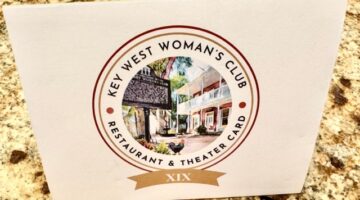
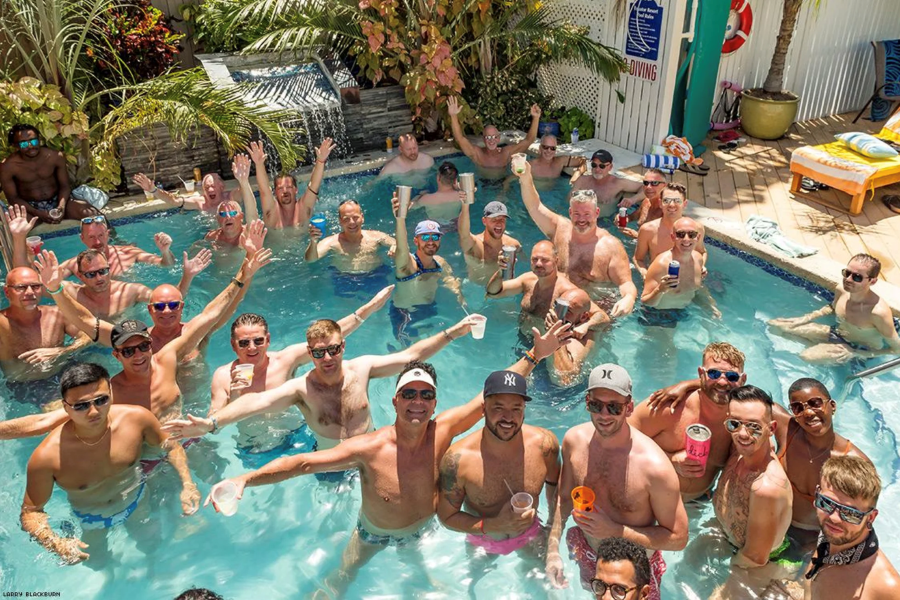
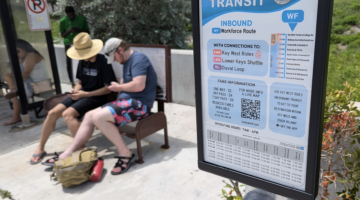
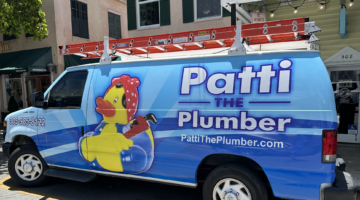
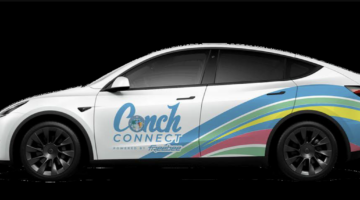
No Comment